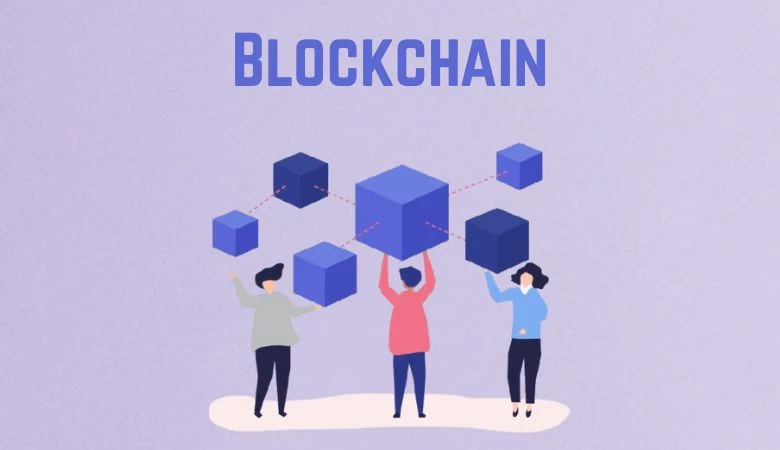Cryptocurrency is quickly moving from the fringes of finance to the core of the global gaming ecosystem. In iGaming—where speed, security, and accessibility are essential—crypto has become more than just a payment method. It’s reshaping the infrastructure of how we play, compete, and get paid. Online poker, a digital-first industry, was one of the earliest adopters of this disruptive tech. As far back as 2014, crypto was already being accepted by online poker platforms, long before the current NFT and metaverse buzz.
Today, crypto poker represents more than just a novel way to make deposits and withdrawals. It’s part of a broader shift toward decentralized finance (DeFi) within entertainment and competition. As outlined by the World Economic Forum, GameFi—a fusion of gaming and finance—is a growing sector that uses blockchain to offer players real ownership, financial control, and global reach. Online poker is thriving at the intersection of this movement, and crypto is central to its new chapter. Here’s why:
Round-the-Clock Accessibility and Freedom of Play
Few things frustrate online poker players more than financial red tape: delayed transactions, restricted payment methods, or account freezes due to traditional banking limitations. Enter cryptocurrency.
One of the most impactful shifts crypto poker has introduced is 24/7 accessibility. The US’s leading online poker site, Americas Cardroom, has fully embraced this concept. Established in 2001, the site is a trusted provider celebrated for its massive tourneys, impressive roster of ambassadors, anti-cheating software, and secure banking that includes crypto. As such, players are no longer confined to banks’ business hours or the availability of local payment processors. Cryptocurrency operates independently of these bottlenecks, providing instant access to games, deposits, and withdrawals.
Their integration of crypto allows players across time zones and continents to stay in action. This level of access isn’t just about convenience—it’s a game-changer for international players in regions where traditional gaming transactions are often restricted or monitored. Crypto breaks down barriers and opens up online poker to markets previously locked out due to regulatory or infrastructural hurdles. It empowers players who might otherwise be sidelined by financial gatekeeping.
Security Rooted in Blockchain
Trust is a core currency in online poker. Whether you believe that the game is fair, that your funds are safe, or that your identity won’t be exploited, security is everything. This is precisely where blockchain technology proves invaluable.

Cryptocurrency transactions are recorded on immutable and transparent distributed ledgers. Our previous crypto article, “What is a Cryptocurrency, and How Do Cryptocurrencies Work?” explains that the underlying structure of blockchain makes data tampering virtually impossible. Every move is logged through the blockchain in a way that can’t be altered without consensus from the network.
This drastically reduces the risk of fraud or manipulation. Unlike traditional poker platforms that store data in centralized servers, vulnerable to hacks or insider abuse, crypto poker sites can decentralize trust. Users don’t need to blindly believe the site—they can verify game fairness and transaction validity for themselves.
Additionally, smart contracts are emerging as powerful tools to automate gameplay and ensure instant payouts. These self-executing code blocks run on the blockchain and eliminate the need for a human or organization to enforce terms. When used in poker, they guarantee that pots are paid out according to results, instantly and irreversibly.
The Economics of Efficiency and Perks
Beyond convenience and security, crypto poker offers a financial edge that traditional platforms struggle to match. Faster payments and lower fees are the immediate benefits, but the ecosystem goes deeper than that.
When you deposit with a bank card or e-wallet, there’s usually a processing fee, sometimes hidden. Withdrawals can take days, with intermediary banks or currency exchange rates shaving value off your winnings. Crypto bypasses all of that. No middlemen. No international wire complications. Just peer-to-peer digital value transfer.
And it doesn’t stop there. Crypto poker sites are increasingly rolling out special incentives to attract and retain players. CoinPoker, co-founded by poker legend, TonyBet gaming platform owner, and former EU politician Antanas “Tony G” Guoga, is a great example. Not only do they accept crypto, but they’ve also created their own token (CHP) and offer bonuses for using it. This includes lower rakes, special tournaments, and community voting on platform decisions; a gamified take on player empowerment.
By rewarding participation, crypto poker sites are creating a player-centric economy. Regulars aren’t just paying to play—they’re gaining perks, ownership stakes, and governance power. The result is an engaged community that blurs the lines between playing and investing.
Leveling the Playing Field: Anonymity and Financial Inclusion
Another overlooked benefit of crypto poker is anonymity and inclusivity. Many traditional sites require full KYC (Know Your Customer) protocols that may exclude players without bank accounts or state-issued IDs. While these policies have legitimate regulatory roots, they can alienate millions of potential users in underbanked regions.
Crypto poker, by contrast, allows anyone with a wallet to play. This is especially important in parts of Africa, Asia, and Latin America, where mobile phone penetration is high but access to traditional financial services is limited. With a smartphone and a crypto wallet, players can fund their accounts and hit the tables—no ID, no credit check, no waiting. As part of their due diligence, world-class operators such as Americas Cardroom offer crypto-centric guides to help players find trustworthy crypto wallets and exchanges.
This isn’t about evading regulation; it’s about expanding opportunity. Crypto poker can help democratize access to one of the most intellectually rewarding games on the planet, giving skilled players a platform regardless of geography or background.
The Road Ahead: Regulation, Innovation, and Mass Adoption
The next chapter in crypto poker’s evolution will likely be shaped by regulatory frameworks and mainstream adoption. While early adopters have benefited from the flexibility and innovation of the space, increasing scrutiny from global financial bodies will bring both challenges and validation.
However, regulation doesn’t necessarily mean restriction; it can also mean clarity. Clear guidelines can give larger brands the confidence to enter the space, increasing liquidity and legitimacy. As more poker platforms adopt blockchain-based infrastructures, players will begin to expect the transparency, speed, and economy that crypto provides.
We may also see further integration with Web3 technologies. Tokenized tournament entries, NFT-based player avatars with reputational scores, and metaverse poker rooms are already being explored. The overlap between DeFi, gaming, and poker is fertile ground for developers and entrepreneurs looking to create the next breakthrough experience.
Crypto as Poker’s Power-Up
Online poker is evolving, and crypto is one of the driving forces behind that transformation. What began as an alternative payment method has now become a cornerstone of innovation in the poker world. It delivers 24/7 global access, airtight security, faster payments, and smarter incentives. It also opens doors for millions of players previously excluded from the ecosystem. And as the rest of the iGaming world begins to catch up, poker is standing tall as a leader, not a follower, in the crypto revolution.
For a game that thrives on sharp minds, calculated risk, and future thinking, the union between poker and crypto is more than logical. It’s inevitable.
Please visit iBlogTech to read more articles like this.














